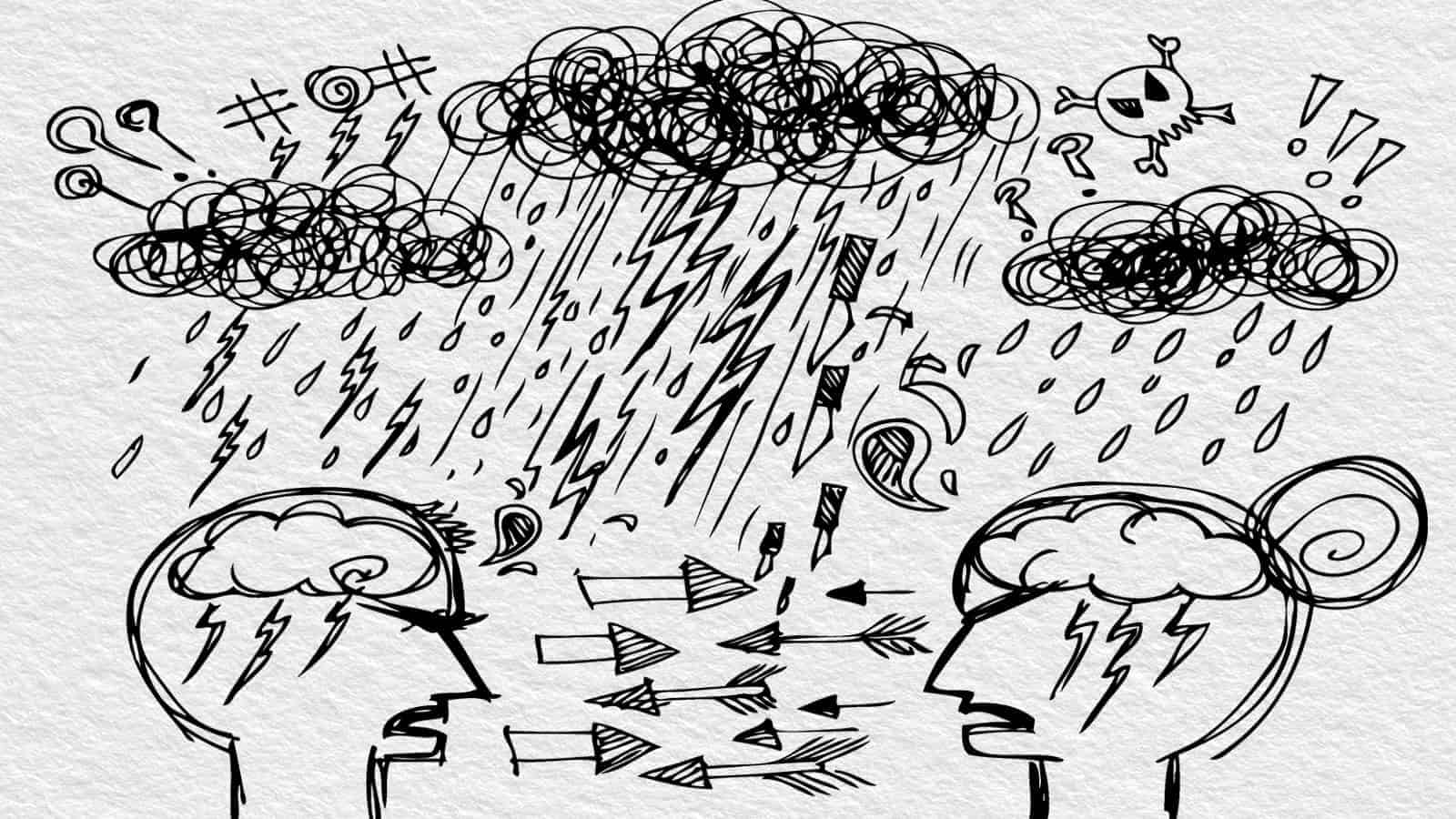You expect it to be built on love, trust, and respect when you’re in a relationship. If your partner is constantly showing you disrespect, you may need to take some action. Here are eight ways to deal with a disrespectful partner.
What is disrespect?
The Merriam-Webster online dictionary defines disrespect as showing low regard or low esteem for someone. Other words they use for disrespect include contempt and lack of consideration. Disrespect is a severe problem in a relationship.
What are examples of a disrespectful relationship?
You may wonder if disrespect has crept into your relationship. Here are signs of disrespectfulness in a relationship.
- Put-downs
- Mistrust
- Ignoring you
- Manipulation
- Rudeness
- Bullying
- Yelling at you
- Selfishness
- Lying to you
- Don’t make you a priority
- Lack of listening
Ten ways to deal with a disrespectful partner
In every relationship, both people contribute to the weaknesses and strengths of the relationship. Despite this, both parties should show mutual respect for one another. If you’re experiencing disrespect from your partner, here are some ways to deal with your partner.
1 – Encourage your partner to share their inner thoughts
Don’t assume their disrespect is about you. Maybe your partner isn’t accustomed to talking about what bothers them. If they grew up in a household where their parents used sarcasm and jabs instead of sitting down to talk about their problems, they wouldn’t know what an emotionally healthy relationship looks like. Their disrespectful attitude is wrong, but seeing the reason behind their disrespect can help you understand how to deal with it.
When they resort to disrespectful comments, ask them what’s bothering them in a gentle but firm voice. Please encourage them to share their feelings. Helping them share their inner thoughts will develop emotional intimacy and trust between the two of you. Be sure to point out that you want to talk about things rather than resort to jabs, bullying, or sarcasm. It may take your partner time to grow in expressing their feelings, but they’ll learn to express themselves instead of giving disrespectful comments over time. Practice sharing your inner thoughts and feelings by asking these questions as a couple.
- What’s the most embarrassing moment of your life?
- When was the last time you cried in front of someone?
- What is too dire for you to joke about?
- Of all the people in your family, who would you like to most like? Why?
- Share with your partner an embarrassing moment in your life.
- When did you last cry in front of another person? By yourself?
- Tell your partner something that you like about them already.
- What is too serious to be joked about?
- What’s your greatest accomplishment?
- What is your worst memory?
- What is your most treasured memory?
2 – Express the pain of their disrespectful comment
A lack of respect is hurtful. Your partner needs to know that their rude comments cause you pain. When they say something disrespectfully, pause for a moment to collect your thoughts so you don’t respond in anger. Then say something like,
I’m not too fond of the way you’re talking to me. Your words are hurtful, so please stop.
Staying calm will get their attention. They may not like what you said, but they will apologize if they care for you. It could be they didn’t realize the impact of their words and didn’t mean to hurt you. Telling them that their words were hurtful should get their attention. It could lead to a deeper conversation about why they said and how they can change.
3 – Point out their disrespectful attitude
Your partner must know they’ve stepped over a line by their disrespectful actions or words. You can push back on their disrespect by saying something like,
That’s not how people who love one another talk (or act) towards one another. It’s disrespectful. I do not deserve this treatment.
Your statement tells your partner that what they’re doing isn’t acceptable. If they love you, they will apologize and ask how they can change. If your partner doesn’t consider what you said and has no desire to change, it’s a red flag. You should consider this.
4 – Get help from others
If disrespect is a constant pattern for your partner, you may need to get outside help. Ask your pastor, a trusted friend, or a family member for assistance. You and your partner should sit down with them and discuss the disrespectful dynamic of your relationship. Sometimes, getting an outside person’s opinion emphasizes the weight of the problem. If your partner doesn’t believe your concerns, they should after this discussion. Emphasize how your partner’s lack of respect is harming you. Explain how you desire to have a loving, mutually respectful relationship. Hopefully, your partner will express a similar desire for your relationship.
 5 – Don’t be needy
5 – Don’t be needy
Being needy in a relationship is a sign of insecurity. If you feel insecure, it isn’t easy to talk to you. Coming across as clingy communicates that you are overly dependent on your partner. They may feel like they’re constantly putting out your “emotional fires.” It’s not a good reason for them to treat you disrespectfully, but seeing your tendency towards this could be helpful. Figure out why you’re feeling insecure in your relationship. Is this a typical pattern for you? Are there things in the relationship that cause you to feel this way? How can you stop being needy?
- Pursue your interests: Find things to do that don’t involve your partner. Have separate interests from your partner.
- Find friends: You can’t depend on your partner to meet all your emotional needs. Find friends you can talk to and enjoy doing things together.
- Pursue faith: Look to God to give your identity and value rather than your partner. Studies show that having faith in God can affect a person’s mental well-being. Religion positively affects depression, quality of life, and a sense of life satisfaction. Having faith gives you a sense of security in who you are as a child.
6 – Listen to their criticism
Don’t ignore your partner’s criticisms. Is there something they’re saying to you that could point to an issue in your life? Of course, you aren’t to blame for your partner’s disrespect. But maybe instead of knowing how to explain what you do, they use sarcasm or manipulation to convey their message. It’s not a mature way to respond, but it could be time to listen to what they’re trying to say. Ask them to sit down with you and ask them questions.
- Listen carefully to their words: Give them eye contact and lean forward. Show that you want to hear them out.
- Ask questions to clarify what they mean: If you don’t understand, you may not fully get their meaning.
- Focus on the facts: Ignore the extra “stuff” they added.
- Tell them you want to think about it, but get back together to talk. Get some space between you and the person to think through what they said.
- Thank them for being honest: Even if they don’t package it correctly, it may be the first time anyone’s had the guts to tell you this.
7 – Get counseling to work through the disrespectful behavior and language
Getting help from a professional counselor can be another helpful way to resolve your partner’s disrespectful attitude. A counselor will give you practical strategies for your relationship. They can help you and your partner replace hurtful words with better communication. If your partner refuses to attend these sessions, you can go. The counselor can specifically help you decide how to handle your partner’s disrespectful attitude.
8 – If they don’t change, you need to make a decision
If you have pointed out your partner’s disrespectful attitude, expressed how hurtful their words and actions are, and tried to change by listening to their criticism, but they haven’t changed, it can be discouraging. If you’ve sought some outside help, they still don’t try to stop being disrespectful. You may need to make a hard decision about this relationship. You’ve given them many opportunities to change, but if they aren’t genuinely sorry for their behavior, they probably will not stop disrespecting you.
They don’t love you if they continue to yell at you, belittle you, and say rude things. It’s hard to face up to this, especially if you care for the person. Tolerating disrespect isn’t good for you. Even if your partner isn’t hitting you, they display abusive behavior. Studies show that verbal abuse is associated with poor mental health. It may be time to leave this relationship.
 Final thoughts on communicating with a disrespectful partner
Final thoughts on communicating with a disrespectful partner
Loving relationships are built on respect for one another. Showing admiration regarding your partner’s feelings and wishes is essential for your relationship to grow. If you’re in a relationship with a partner who continually shows you a lack of respect, you need to speak up. Your partner may not realize how their words affect you, or they may not know how to express their feelings maturely. These aren’t excuses for their disrespect, but they can help you understand them better. If your partner shows little regard for how their words and actions affect you, it may be time to reconsider the relationship.


















